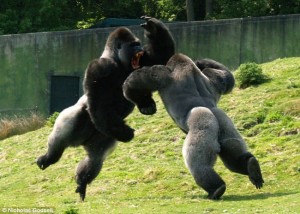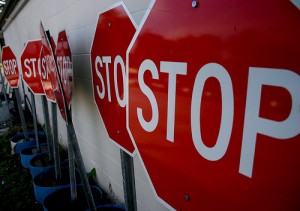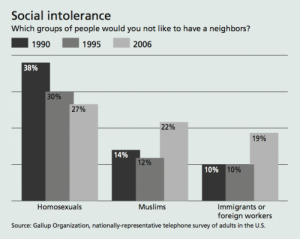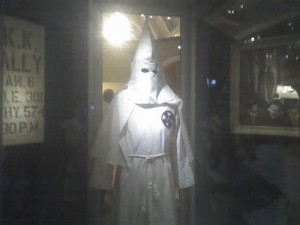Recently, everyone’s most charismatic anti-Semitic homophobe, Mel Gibson, expanded his repertoire. According to widely distributed recordings, Gibson has gone beyond disliking just gays and Jews. He also despises women, blacks, and Latinos. I’m talking about those direct threats to his ex-girlfriend and his causal dropping of both the N-word and the W-word.
Now, a common question, besides the snide pondering of what his pals Danny Glover and Jodie Foster think of all this, is how could such a devoutly religious man be so filled with hatred? After all, Gibson directed The Passion of the Christ (a slice of hardcore propaganda for Christianity if ever there was one) and has been vocal about his faith.
As a brief aside, I may have mentioned – once or several hundred times – that I was raised Catholic, as many Hispanics are. I dropped out of the Church when I was a teenager.
One reason I left the Church was that I grew weary of being told I should feel guilty for every thought or action, no matter how innocuous. But I will give credit to my old parish for one thing: It at least told me that I should feel bad if I ignored Jesus Christ’s teachings.
To my surprise, many Americans don’t even have the self-respect to acknowledge when they are contradicting their spiritual foundation. I’m referring, of course, about the recent study that found a positive correlation between religion and racism.

We all know that most U.S. churches are racially homogenous (over 90 percent of them, by some estimates). But this study found that in these ethnically pure places of worship, “strong religious in-group identity was associated with derogation of racial out-groups.” This means that many Christians are looking at one of Christ’s great commands – “You shall love your neighbor as yourself” (Matthew 22:39) – and amending it with the phrase “unless they look different than you.”
The researchers found that “religion is practiced largely within race” and as such, “religious in-group identity promotes general ethnocentrism.” This study focused on white Protestants, but the researchers believe that their findings apply to other groups because “all religions teach moral superiority.”
I’d like to say that all this surprises me, but it doesn’t. I’m sure we have all met religious people who struck us as somewhat less than holy. I still remember the older man who told anyone who would listen that he was saved, because he had accepted Jesus Christ as his savior. And then he dropped a few choice comments about minorities.
And my wife told me about the time she was stuck in a car with a group of well-to-do (and supposedly devout) Christians. To her surprise, her fellow passengers joked about running over African Americans on the way to their destination. They were going, of course, to a wedding… in church.
My wife is no longer friends with these people.
What amazes me is the overt contradiction that these feelings should create. Yet there seems to be little internal conflict.
Even religious homophobes who are secretly gay spend time praying to “cure” their supposed affliction. Their tragically wrongheaded approach at least causes them angst.
But many Christians apparently see nothing wrong with praising Jesus and then dismissing one of his central principles. Perhaps the more studious racists in the study can justify it with the ancient argument that all the other races are decedents of Ham, Noah’s ostracized son, and are therefore worthy of scorn. But somehow, I doubt this theological viewpoint comes up too much.
Regardless of how religious people justify it, the effect is real. The researchers “failed to find that racial tolerance arises from humanitarian values, consistent with the idea that religious humanitarianism is largely expressed to in-group members.”
In sum, I can say I’m a good person if I’m nice to people at my church. And it’s best if I don’t think about it too much beyond that.
As such, Mel Gibson has plenty of company.
Again, the study implies that every religion has this dirty little secret. One could argue, in fact, that modern religion demands a certain level of hatred for the mythical Other.
For example, the Amish are as religious as it gets, submitting their lives to a strict version of what they believe God wants. And yet, this very devotion to spiritual belief also requires a certain level of xenophobia. It’s necessary to maintain their theological (and theoretical) purity. Even if the Amish went looking for converts, I doubt they would be in a big hurry to accept a black person (by the way, if the Wayans brothers would like to develop this concept into a zany comedy, tell them to call me and we’ll do lunch).
So was there anything positive about this study? Did the researchers find any group that might offer some hope for the future?
Yes, there was. The researchers said, almost as an aside, that “only religious agnostics were racially tolerant.”
Well, that’s just great. How are we supposed to fit that into a sermon?















